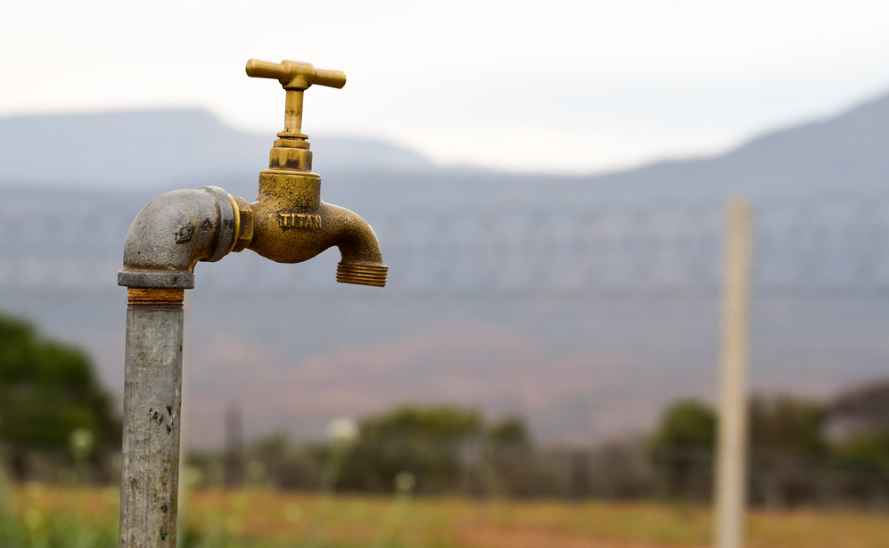Rs 572.23 Cr fund approved to implement Jal Jeevan Mission in Jharkhand in 2020-21
Jharkhand is planning 100% household coverage by 2023-24. Out of 54 lakh rural households in the State, only 4.37 lakh have functional household tap connection (FHTC).

- Country:
- India
Jharkhand presented their Annual Action Plan for implementation of Jal Jeevan Mission in the State to the Ministry of Jal Shakti. The meeting was conducted through a VC chaired by Secretary, Department of Drinking Water & Sanitation. The Ministry of Jal Shakti has been working with the States in designing a roadmap to implement Prime Minister’s flagship programme, Jal Jeevan Mission, which aims to provide 55 litres of water per person per day to every rural household of the country by 2024.
Jharkhand is planning 100% household coverage by 2023-24. Out of 54 lakh rural households in the State, only 4.37 lakh have functional household tap connection (FHTC). In 2019-20, only 98,000 tap connections were provided. This means there is an immense scope to provide tap connections to remaining rural households. In 2020-21, the State is planning to enable 12 lakh households with tap water connections. Further, State is planning for 100% coverage of 15 blocks and 4,700 villages (16%) during 2020-21. Focusing on the priorities of making provision of household tap connections in certain areas, Ministry officials stressed on the principle of ‘equity and inclusiveness’ while State is planning to provide FHTCs to SCs/ STs, marginalized and weaker sections of the society.
Central Govt has approved fund of Rs 572.23 Crore for implementation of Jal Jeevan Mission in Jharkhand in 2020-21, which is a considerable increase from Rs. 267.69 Crore in 2019-20. The state was asked for expeditious implementation of the programme in terms of physical outputs i.e. no of tap connections provided and commensurate financial progress so that the State can avail additional funds based on the performance. With an opening balance of Rs. 201 Crore available with the State and along with this year’s allocation of Rs. 572.24 Crore, Jharkhand has assured availability of Rs.773.28 Crore as Central fund. Considering the State matching share, a total of Rs. 1,605.31 Crore will be available under Jal Jeevan Mission to provide tap connections to families in rural areas in Jharkhand.
Also, the State would receive Rs 1,689 Crore as 15th Finance Commission Grants to PRIs, 50% of which will mandatorily be spent on water and sanitation. There is need for convergence planning to be done by the State under various programmes like MGNREGS, JJM, SBM (G), 15th Finance Commission Grants to PRIs, District Mineral Development Fund, CAMPA, CSR Fund, Local Area Development Fund, etc. at village level and Village Action Plan (VAP) of every village to be prepared by dovetailing all such funds for carrying out water conservation activities leading to strengthening water source leading to drinking water security.
State plans to involve local village community/ Gram Panchayats or user groups in planning, implementation, management, operation and maintenance of water supply systems in villages to ensure long-term sustainability. In all villages, IEC campaign along with community mobilization is taken up to make JJM, truly a people’s movement. State plans to engage voluntary organisations already working in the social sector and natural resources management and they could be effectively used to mobilize the rural community for the creation of in-village water supply infrastructure as well as for their operation and maintenance.
Jharkhand State has 19 aspirational districts, so the State has been advised to give priority to these areas while planning. Similarly focus should be on universal coverage of SC/ ST dominated villages, water-scarce areas, villages under Sansad Adarsh Gram Yojana, particularly Vulnerable Tribal Group habitations.
As per Guidelines of JJM, every source needs to be tested once for chemical parameters and twice for bacteriological contamination (pre and post-monsoon) in a year as a part of water quality monitoring. The state has been asked for mandatory testing of all water sources accordingly. It has also been advised for opening water quality laboratory facilities to the general public. In each village, five women are being trained to test the quality of water supplied at the village level.
In the prevailing CoVid-19 pandemic situation, State has been requested start works related to water supply and water conservation immediately in villages so as to provide works to the skilled/ semi-skilled migrant workers to provide livelihood as well as to ensure potable water in the households of rural people.
(With Inputs from PIB)
ALSO READ
UP Gears Up for 2026 Elections with Special Voter Campaigns
AIMIM's Civic Poll Triumph: Owaisi's Campaign Strategy Shines
India Begins U-19 World Cup Campaign with Confidence Against Bangladesh
Trump's Pressure Campaign Targets the Fed: Powell Under Investigation
Tamilaga Vettri Kazhagam Sets Up Election Campaign Committee










